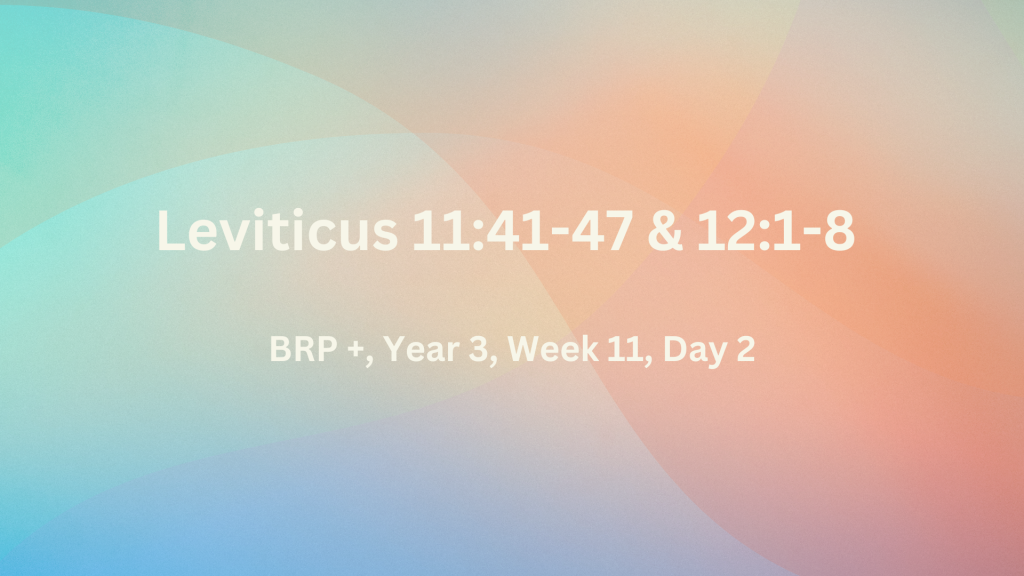Leviticus 11:41-47 & 12:1-8
Q.1. Why did God give dietary restrictions to Israel? – 11:41-47
It is clear that the Lord wanted His own people to be distinctively different from the other nations (as He does us), so told Israel – 44 For I am the Lord your God. Consecrate yourselves therefore, and be holy, for I am holy. And you shall not make yourselves unclean with any of the swarming things that swarm on the earth. 45 For I am the Lord who brought you up from the land of Egypt to be your God; thus, you shall be holy, for I am holy (Lev.11:44-45). God makes a distinction between the sacred and the profane, and He wants us to commit to do the same (Lev.11:47 c.f. Mal.3:18). It has been confirmed medically that Israel’s dietary restrictions protected God’s people from disease and infection, at a time when health and hygiene were little understood. This also shows the benefits of boundaries – to make a distinction between the unclean and the clean (Lev.11: 47). However, primarily these restrictions were given because these people were not their own but were bought with a price. Therefore, Israel was to obey whatever God commanded – For I am the Lord who brought you up from the land of Egypt to be your God; thus, you shall be holy, for I am holy (Lev.11:45 c.f. 1 Cor.6:19-20).
Q.2. How was the birth of a male child different from that of a female child? – (Lev.12:1-5)
We know that in Christ, men and women share equally in the promises and blessings of the new covenant, and that all believers are heirs of these promises (c.f. Gal.3:28-29; 1 Pet.3:7). However, when those who are called to lead their families, or to lead the church, disobey God, the repercussions are more far-reaching. In Israel, the headship of the male was marked by circumcision (Gen.17:9-14 c.f. 1 Cor.11:3, 8-12). Even Jesus was a child of the old Covenant, so His parents did everything according to the Law (Lk.2:21-24). The month or two of waiting after a woman birth before she resumed normal activities, would have given the woman time to recover. However, these requirements also seemed to underscore the significance of blood (Lev.12:2-5). God reserved blood as a sacred thing (Gen.4:9-10; 9:4-6; Heb.9:14, 22; 1 Pet.1:18-19; Rev.5:9).
Q.3. What was the significance of the offerings following the birth of a child? (Lev.12:6-8)
The best way to answer this question, is to consider the birth of babies without such a sacrifice, as happens today. This means that children can come into the world and be raised without any reference to the God Who created them, and Who has a plan for their lives (Jer.1:4-5). However, the uncleanness was related to the mother and not the child and spoke of ceremonial uncleanness. This would prevent the mother from participating in the worship at the sanctuary until she had been cleansed (Lev.12:6-7). The offering of the atoning sacrifice indicated that the mother (and her husband) placed a proper value on being right with God, because as David wrote – Behold I was brought forth in iniquity, and in sin my mother conceived me (Ps.51:5 c.f. Rom.5:12). Mary and Joseph brought such an offering when they presented Jesus to the Lord in the Temple at Jerusalem (Lk.2:22-24).

